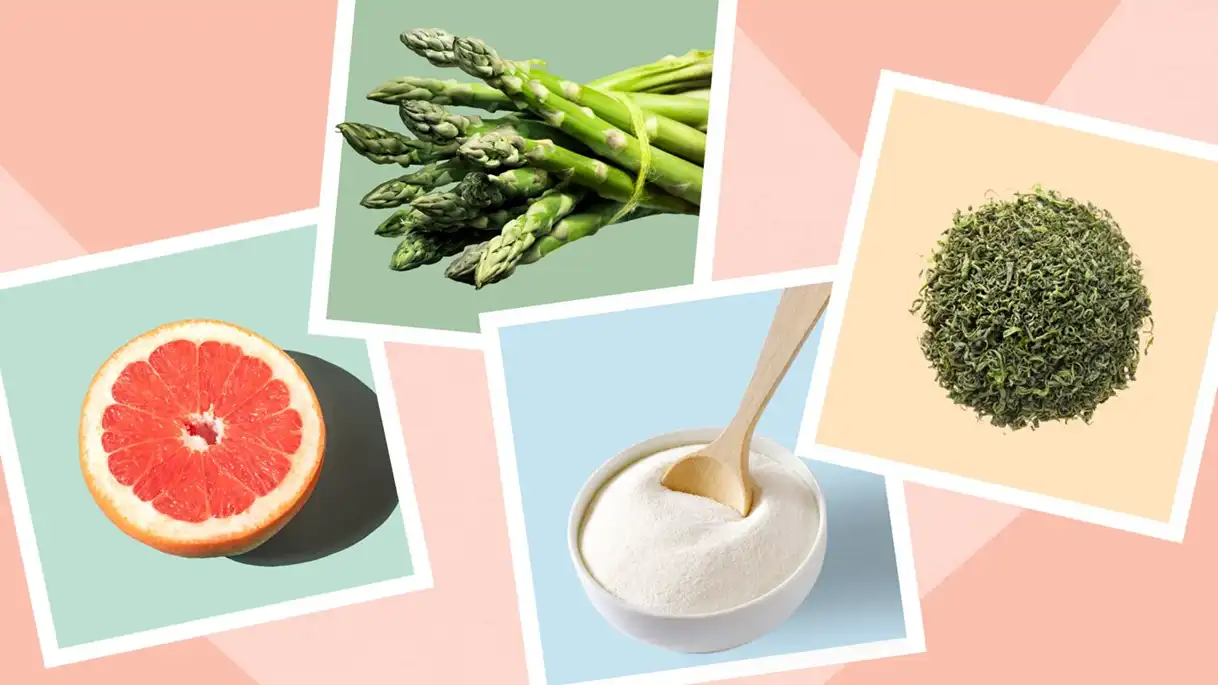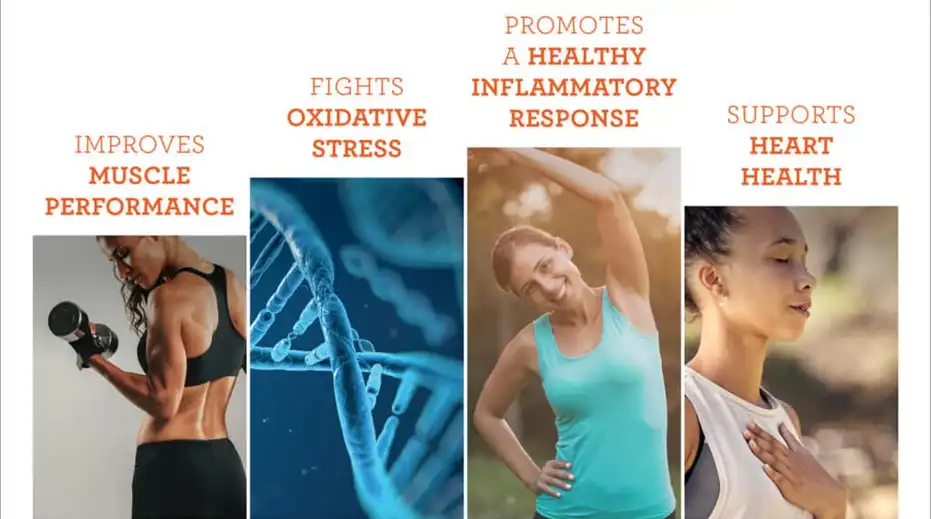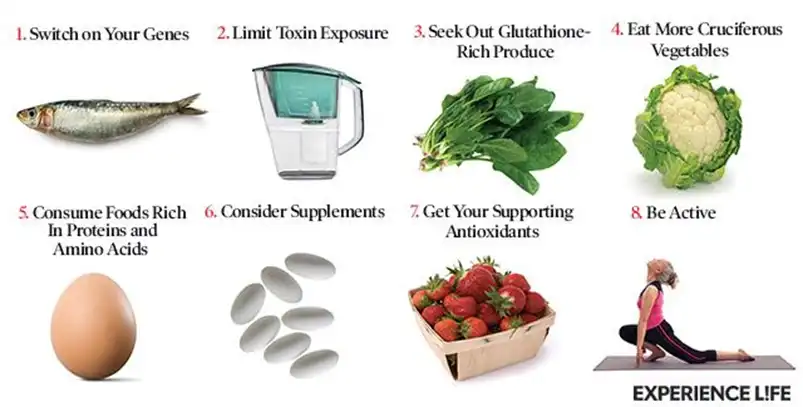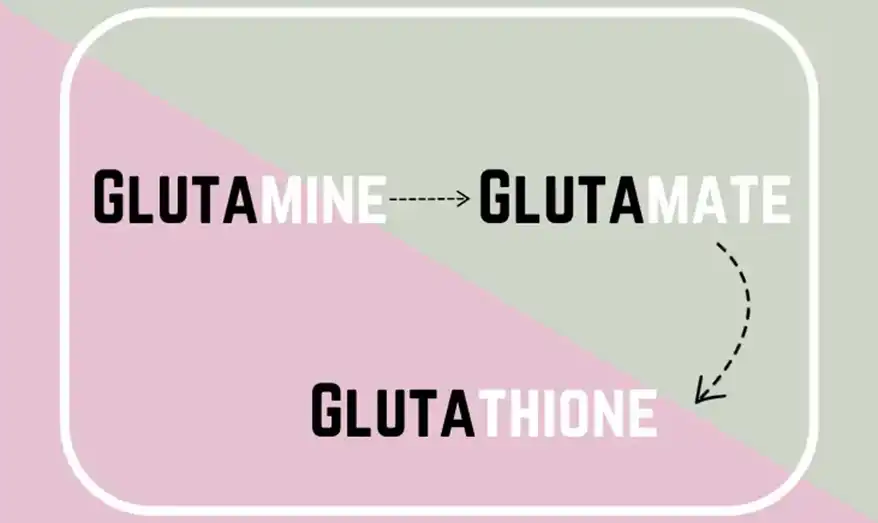What is Glutathione and Why Do We Need it?
What is glutathione?
Glutathione is an antioxidant made in all human cell and helps to prevent cell damage due to oxidizing free radicals. It is made in the liver using the amino acids L-glutamate, cysteine and glycine. High levels of glutathione exist in the cell, at the same concentrations as glucose (blood sugar), potassium and cholesterol. It is also naturally present in many foods. Glutathione is used as a cofactor to help block oxidative stress by inhibiting free radical formation in the body. Free radicals are molecules that are made when you are exposed to toxins like tobacco smoke or radiation. Free radicals have been proposed to be involved in various diseases such as heart disease and cancer.
What are common names for glutathione?
Common names for glutathione include:
- · Gamma-Glutamylcysteinylglycine
- · Gamma-L-Glutamyl-L-Cysteinylglycine
- · Glutathione
- · Glutathionum
- · GSH
- · L-Glutathion
- · L-Glutathione
Is Glutathione the Secret for Ageless Luminous Skin?
Glutathione’s antioxidant properties translate to a number of benefits for skin. The main benefits are protecting skin cells from free radical damage, reduction of hyperpigmentation and anti-aging effects.
· Antioxidant Protection
Glutathione protects the skin from environmental damage and oxidative stress by neutralizing free radicals. These are normally key causes of premature aging and skin dullness. Pollutants, UV radiation and other environmental factors induce oxidative stress which leads to the breakdown of collagen and elastin.
· Evening Out Skin Tone
The ability of glutathione to control pigmentation is one of its most sought-after benefits in skincare. By regulating tyrosinase activity, glutathione can reduce excess melanin which then helps fade hyperpigmentation. This action not only contributes to a more even and balanced skin tone but also boosts overall skin brightness.
· Anti-Aging
Glutathione plays a role in supporting tissue repair and regeneration which are crucial for maintaining skin elasticity. As the skin ages, it produces less collagen and elastin which leads to the formation of fine lines, wrinkles and a loss of firmness. Glutathione helps combat these age-related changes by stimulating the repair of damaged tissues and promoting production of new healthy skin cells.
Glutathione benefits
1. Reduces oxidative stress
Oxidative stress occurs when there’s an imbalance between the production of free radicals and the body’s ability to fight them off. Too-high levels of oxidative stress may be a precursor to multiple diseases. These include diabetes, cancer, and rheumatoid arthritis. Glutathione helps stave off the impact of oxidative stress, which may, in turn, reduce disease.
2. May improve psoriasis
A small study indicated that whey protein, when given orally, improved psoriasis with or without additional treatment. Whey protein had been previously demonstrated to increase glutathione levels. Study participants were given 20 grams as an oral supplement daily for three months. Researchers stated that more study is needed.
3. Reduces cell damage in alcoholic and nonalcoholic fatty liver disease
Cell death in the liver may be exacerbated by a deficiency in antioxidants, including glutathione. This can lead to fatty liver disease in both those who misuse alcohol and those who don’t. Glutathione has been shown to improve protein, enzyme, and bilirubin levels in the blood of individuals with alcoholic and nonalcoholic chronic fatty liver disease.
A study reported that glutathione was most effective when given to people with fatty liver disease intravenously, in high doses. Participants in the study also showed reductions in malondialdehyde, a marker of cell damage in the liver.
4. Improves insulin resistance in older individuals
As people age, they produce less glutathione. Researchers at Baylor School of Medicine used a combination of animal and human studies to explore the role of glutathione in weight management and insulin resistance in older individuals. Study findings indicated that low glutathione levels were associated with less fat burning and higher rates of fat storing in the body.
5. Increases mobility for people with peripheral artery disease
Peripheral artery disease occurs when the peripheral arteries become clogged by plaque. It most happens in the legs. One study reported that glutathione improved circulation, increasing the ability of study participants to walk pain-free for longer distances. Participants receiving glutathione rather than a saline solution placebo were given intravenous infusions two times daily for five days, and then analyzed for mobility.
6. Reduces symptoms of Parkinson’s disease
Parkinson’s disease affects the central nervous system and is defined by symptoms such as tremors. It currently has no cure. One older study documented intravenous glutathione’s positive effects on symptoms such as tremors and rigidity. While more research is needed, this case report suggests that glutathione may help reduce symptoms, improving quality of life in people with this disease.
7. May help fight against autoimmune disease
The chronic inflammation caused by autoimmune diseases can increase oxidative stress. These diseases include rheumatoid arthritis, celiac disease, and lupus. According to one study, glutathione helps reduce oxidative stress by either stimulating or reducing the body’s immunological response. Autoimmune diseases attack the mitochondria in specific cells. Glutathione works to protect cell mitochondria by eliminating free radicals.
8. May reduce oxidative damage in children with autism
Several studies, including a clinical trial reported in Medical Science indicate that children with autism have higher levels of oxidative damage and lower levels of glutathione in their brain. This increased susceptibility to neurological damage in children with autism from substances such as mercury.
9. May reduce the impact of uncontrolled diabetes
Long-term high blood sugar is associated with reduced amounts of glutathione. This can lead to oxidative stress and tissue damage. A study found that dietary supplementation with cysteine and glycine boosted glutathione levels. It also lowered oxidative stress and damage in people with uncontrolled diabetes, despite high sugar levels. Study participants were placed on 0.81 millimoles per kilogram (mmol/kg) of cysteine and 1.33 mmol/kg glycine daily for two weeks.
10. May reduce respiratory disease symptoms
N-acetylcysteine is a medication used to treat conditions such as asthma and cystic fibrosis. As an inhalant, it helps to thin mucus and make it less paste-like. It also reduces inflammation. N-acetylcysteine is byproduct of glutathione.
Glutathione is found in some foods, although cooking and pasteurization diminish its levels significantly. Its highest concentrations are in:
- raw or very rare meat
- unpasteurized milk and other unpasteurized dairy products
- freshly-picked fruits and vegetables, such as avocado, and asparagus.
Forms
Glutathione contains sulfur molecules, which may be why foods high in sulfur help to boost its natural production in the body. These foods include:
- cruciferous vegetables, such as broccoli, cauliflower, Brussels sprouts, and bok choy
- allium vegetables, such as garlic and onions
- eggs
- nuts
- legumes
- lean protein, such as fish, and chicken
Other foods and herbs that help to naturally boost glutathione levels include:
- milk thistle
- flaxseed
- seaweed
- whey
Glutathione is also negatively affected by insomnia. Getting enough rest on a regular basis can help increase levels.
Glutamine vs Glutathione
Both glutamine and glutathione are essential for overall health. Supplementing glutamine supports intestinal health and immune function. Supplementing with glutathione provides your body with this powerful antioxidant that neutralizes free radicals and helps protect cells from damage.
Wrapping up, Glutathione is a powerful antioxidant that’s made in the body’s cells. Its levels decrease as a result of aging, stress, and toxin exposure. Boosting glutathione may provide many health benefits, including reduction of oxidative stress. Even if you never take a glutathione supplement, the amino acid compound is hard at work performing vital functions throughout your body, 24 hours a day, seven days a week. It’s produced naturally in the body, but it’s also presents in certain fruits and veggies. If you decide to supplement your diet with glutathione, note that the research on the benefits isn’t strong, largely because the studies are generally small. More rigorous studies that analyze the various modes of delivery are needed before it’s clear whether glutathione supplements are safe and effective. It’s best to consult your healthcare team before taking glutathione supplements and get your nutrients through food whenever possible.
Where to Buy Glutathione Powder?
You can purchase Glutathione powder available with free sample at yanggebiotech.com. The company is an industry-leading manufacturer and distributor for pure dietary supplements. YANGGE BIOTECH INGREDIENTS is not just a consumer brand. It also supplies pure ingredients to other brands that distribute food and other supplement products. Contact us to place an order today.
References:
https://tl.yanggebiotech.com/beauty-ingredients/glutathione-powder
https://ceb.yanggebiotech.com/food-additive/glutathione-reduced-powder
Wu G, Fang YZ, Yang S, Lupton JR, Turner ND. Glutathione metabolism and its implications for health. J Nutr. 2004;134(3):489-492. doi:10.1093/jn/134.3.489
Pizzorno J. Glutathione!. Integr Med (Encinitas). 2014;13(1):8–12. PMID:26770075
Zhao J, Huang W, Zhang S, et al. Efficacy of glutathione for patients with cystic fibrosis: a meta-analysis of randomized-controlled studies. Am J Rhinol Allergy. 2020;34(1):115-121. doi:10.1177/1945892419878315
Ciofu O, Smith S, Lykkesfeldt J. Antioxidant supplementation for lung disease in cystic fibrosis [published online ahead of print, 2019 Oct 3]. Cochrane Database Syst Rev. 2019;10(10):CD007020. doi:10.1002/14651858.CD007020.pub4
Block KI, Koch AC, Mead MN, Tothy PK, Newman RA, Gyllenhaal C. Impact of antioxidant supplementation on chemotherapeutic toxicity: a systematic review of the evidence from randomized controlled trials. Int J Cancer. 2008;123(6):1227-1239. doi:10.1002/ijc.23754
Sechi G, Deledda MG, Bua G, et al. Reduced intravenous glutathione in the treatment of early Parkinson's disease. Prog Neuropsychopharmacol Biol Psychiatry. 1996;20(7):1159-1170. doi:10.1016/s0278-5846(96)00103-0
Weschawalit S, Thongthip S, Phutrakool P, Asawanonda P. Glutathione and its antiaging and antimelanogenic effects. CCID. 2017;10:147-153. doi:10.2147%2FCCID.S128339
Marrades RM, Roca J, Barberà JA, de Jover L, MacNee W, Rodriguez-Roisin R. Nebulized glutathione induces bronchoconstriction in patients with mild asthma. Am J Respir Crit Care Med. 1997;156(2 Pt 1):425-430. doi: 10.1164/ajrccm.156.2.9611001
Steiger MG, Patzschke A, Holz C, et al. Impact of glutathione metabolism on zinc homeostasis in Saccharomyces cerevisiae. FEMS Yeast Res. 2017;17(4). doi:10.1093/femsyr/fox028
Minich DM, Brown BI. A review of dietary (phyto)nutrients for glutathione support. Nutrients. 2019;11(9):2073. doi:10.3390/nu11092073
Hasani M, Djalalinia S, Khazdooz M, et al. Effect of selenium supplementation on antioxidant markers: a systematic review and meta-analysis of randomized controlled trials. Hormones (Athens). 2019;18(4):451-462. doi:10.1007/s42000-019-00143-3
Martins ML, da Silva AT, Machado RP, et al. Vitamin C decreases reduced glutathione in chronic haemodialysis patients: a pilot, randomised, double-blind trial. Int Urol Nephrol. 2021;53(8):1695-1704. doi:10.1007/s11255-021-02797-8
Atkuri KR, Mantovani JJ, Herzenberg LA, Herzenberg LA. N-acetylcysteine--a safe antidote for cysteine/glutathione deficiency. Curr Opin Pharmacol. 2007;7(4):355-359. doi:10.1016/j.coph.2007.04.005
Boukazoula F, Ayari D. Effect of milk thistle (Silybum marianum) supplementation on the serum levels of oxidative stress markers in male half marathon athletes. Biomarkers. 2022;27(5):461-469. doi:10.1080/1354750X.2022.2056921.
Sonthalia S, Jha AK, Lallas A, Jain G, Jakhar D. Glutathione for skin lightening: a regnant myth or evidence-based verity?. Dermatol Pract Concept. 2018;8(1):15-21. doi:10.5826/dpc.0801a04
Mischley LK, Lau RC, Shankland EG, Wilbur TK, Padowski JM. Phase IIb study of intranasal glutathione in Parkinson's disease. J Parkinsons Dis. 2017;7(2):289-299. doi:10.3233/JPD-161040
Jones DP, Coates RJ, Flagg EW, et al. Glutathione in foods listed in the National Cancer Institute's Health Habits and History Food Frequency Questionnaire. Nutr Cancer. 2009;17(1):57-75. doi:10.1080/01635589209514173







